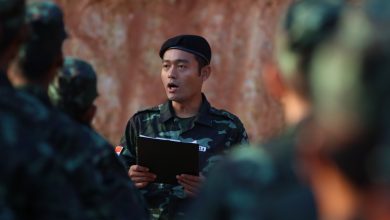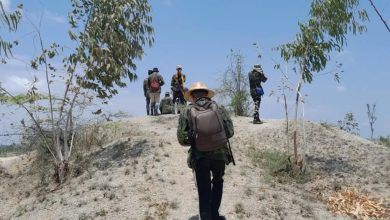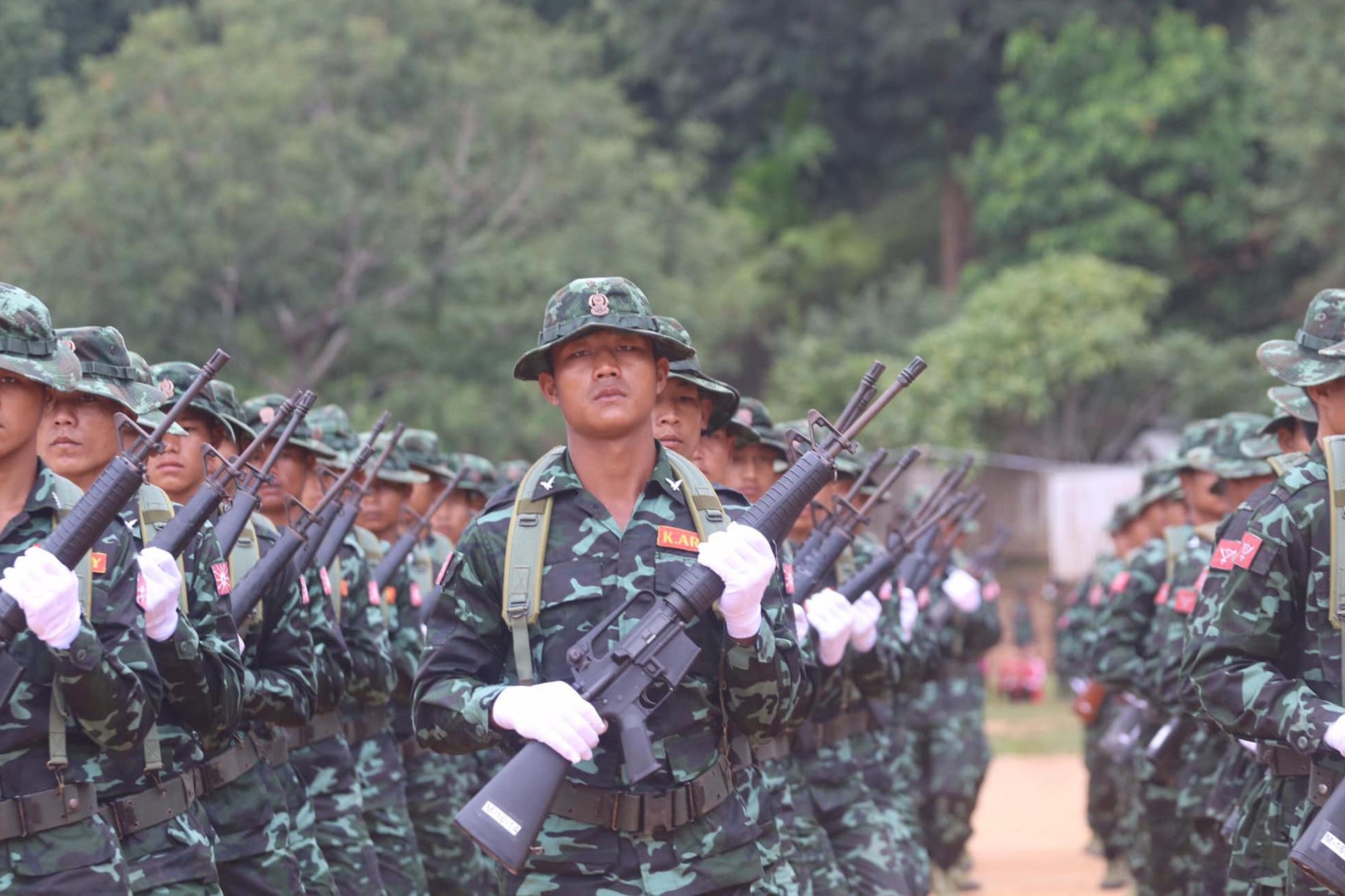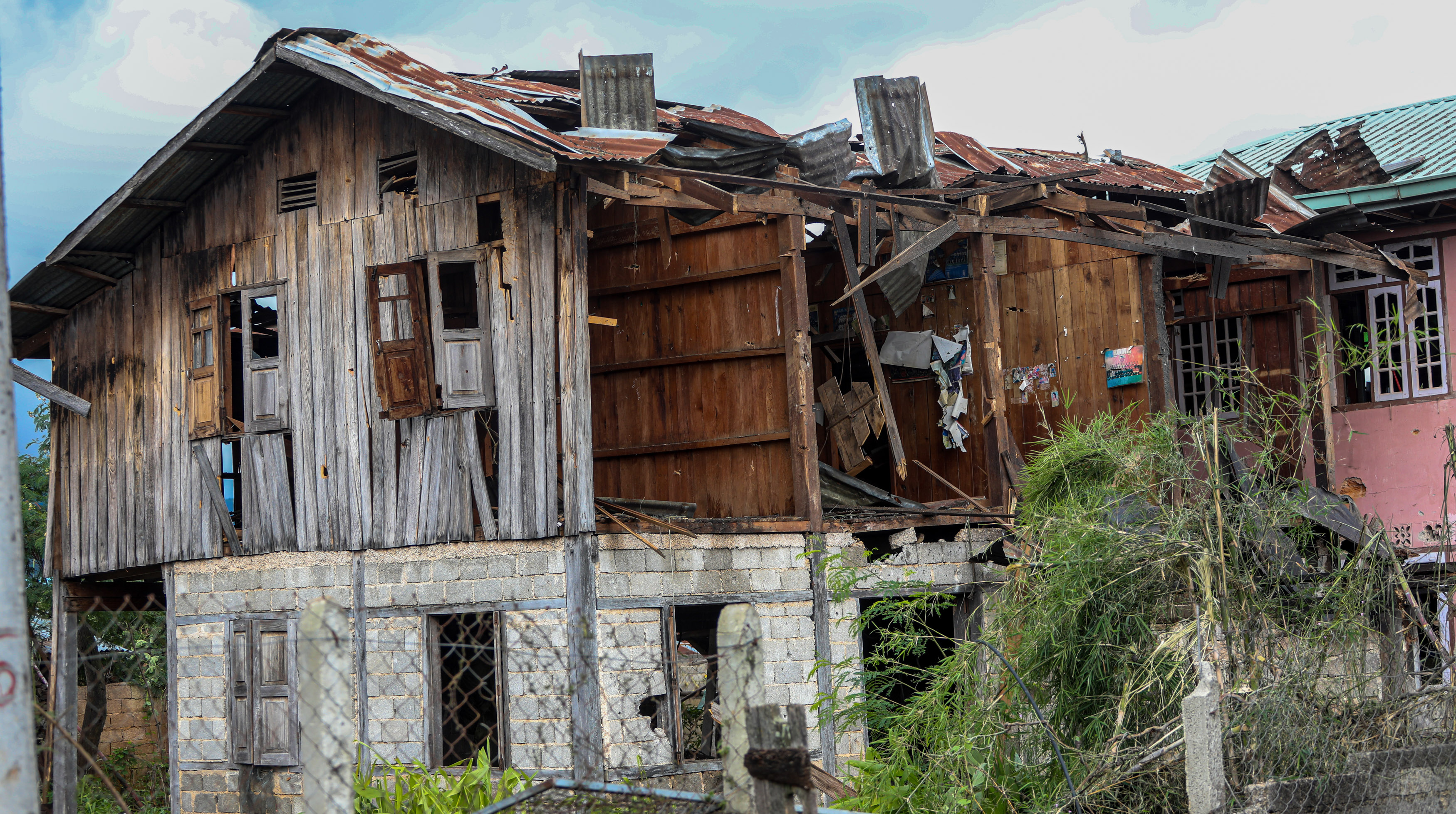
New legislation passed by the US House of Representatives (US House) last week—known as the BURMA (Burma Unified through Rigorous Military Accountability) Act—could compel significant changes in US policy towards Myanmar. The legislation, in the form of amendments to the annual National Defense Authorization Act (NDAA), is expected to become law within weeks after passing by a floor vote in the US Senate.
Although US lawmakers have referred to the NDAA amendments discussed in this interview as the “BURMA Act,” they differ in some respects from a 2021 bill introduced in the US House under the same name. The earlier bill passed in the lower legislative chamber but was never brought to a vote in the upper chamber—the US Senate—and did not become law.
The newly passed and amended BURMA Act within the NDAA purportedly serves as a green light for the US government to impose sanctions against Myanmar’s coup regime and the individuals or entities that abet its atrocities. It also authorises “non-lethal assistance” to the publicly mandated, civilian National Unity Government (NUG) and other opposition and resistance groups in Myanmar. This assistance does not include arms.
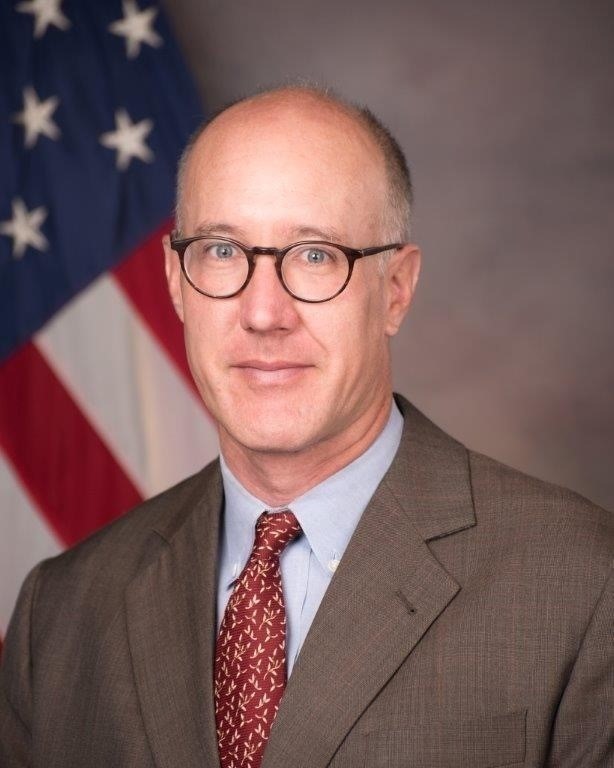
Myanmar Now recently discussed this legislation with Dr Zachary Abuza, a Southeast Asian politics and security issues expert at the National War College in Washington, DC.
While acknowledging the bill’s importance, Prof Abuza criticised the delayed response of the US and other democratic governments to Myanmar’s urgent humanitarian crisis following the 2021 coup. He outlined further international action he deemed necessary to deter atrocities in the country and support resistance groups in Myanmar, and offered an explanation for the US government’s ongoing refusal to supply weapons to the junta’s opponents.
Myanmar Now: The BURMA Act of 2022 has been added to the NDAA and was passed by the US House on December 8. Could you please explain its significance for US policy towards Myanmar/Burma?
Prof. Zachary Abuza: The BURMA Act of 2022 was included in the FY23 [Fiscal Year 2023] National Defense Authorization Act that the House of Representatives passed on December 6. Often these large spending bills have other pieces of legislation tacked on, especially if they are meant to pressure the executive branch to take some action that Congress wants. This year’s NDAA also included the Taiwan Enhanced Resilience Act.
In the 2022 NDAA, Congress expressed their displeasure with the Biden Administration’s policies on the Myanmar junta, considering them insufficient. The 2022 legislation called on the administration to step up their contact and relations with the NUG. We saw clear evidence of that. The NUG was represented on the sidelines of the US–ASEAN Summit; there were several high-level engagements between the National Security Council and Department of State with the NUG. In late 2022, the US allowed the NUG to open a representative office in Washington, DC to support their lobbying and coordination efforts. Perhaps the administration would have done those things on its own, but when Congress puts it into the one spending bill that is passed without exception every year, it does force the administration’s hands.
Let me be clear, even if the Biden administration does everything Congress calls on it to do in this year’s NDAA, it is insufficient to bring about the downfall of the [junta]. There is much more the US government can and should do to support the NUG, which Washington acknowledges is the lawful and legitimate government representing the people of Myanmar.
MN: The BURMA Act explicitly states that the US will provide technical support and non-lethal assistance to ethnic armed organisations (EAOs), People’s Defence Forces (PDFs), and pro-democracy organisations ‘to strengthen communication and command and control’ as well as the coordination of international relief. Do you think that this constitutes a major US policy change? Could you unpack the term ‘non-lethal assistance’ and how that assistance could affect the armed resistance?
ZA: This is an important development. While I have long argued that the US government should be supplying lethal assistance to the NUG, it is not going to happen for four key reasons: First, Myanmar is not a national security priority for the US and you find no senior leader justifying our policy in terms of US national interests. Second, there is concern over who and what components would get the weapons, especially considering that many EAOs are involved in the burgeoning illicit narcotics market. The US government is terrified of the scandal should US weapons find their way into the hands of EAOs who are deeply involved in the production and sale of synthetic drugs. Third, the US stockpiles of arms and ammunition are being depleted by Ukraine, which the US has deemed in its national interest to support. Fourth, the actual issue of logistics of providing weapons is a challenge given that Thailand, China, India, and Bangladesh would not support it.
In sum, while I believe the NUG deserves lethal assistance, there are no strong advocates of providing them with arms within the administration. Thus, I have strongly advocated for the provision of non-lethal assistance, including encrypted communications devices, battlefield medicine, intelligence support including provision of commercially available (though expensive) satellite imagery, intelligence sharing, and training. Most importantly, the US could step up their support for the NUG’s civil administration, including public health, education and rule of law/policing. Finally, the US government could provide monetary assistance to the NGOs that facilitate the defection of military forces and provide them with subsistence funds.
“While I believe the NUG deserves lethal assistance, there are no strong advocates of providing them with arms within the administration. ”
All of this is possible, and some is even in the works. But again, there are logistical challenges to this. America’s treaty ally Thailand continues to support the [junta] and prevent large scale humanitarian access to the border. The US, itself, needs a permanent representative to the NUG. This would be all the more important because the US has announced that it is downgrading diplomatic ties with the [junta], by not replacing the prematurely departing US ambassador. But Washington really needs a point person to be a liaison with the NUG and coordinate the delivery of non-lethal assistance.
MN: Given the untold atrocities the people of Myanmar have been subjected to for almost two years, do you think that the US’s BURMA Act has come too late? The people of the country have long hoped for decisive assistance from the US to deter the reckless atrocities of the junta: do you think that the BURMA Act can fulfil that hope?
ZA: Yes, the US BURMA Act is way too little, too late, given the atrocities and human rights abuses suffered by the people of Myanmar across the country on a daily basis. The military intentionally uses war crimes as part of their military doctrine. The Four Cuts strategy is designed to terrorise the population into submission. Their reliance on indiscriminate artillery and air assaults are designed to target civilian populations. The military’s arson attacks have burnt down nearly 40,000 homes since the coup. Four people have been executed and 138 have been sentenced to death; nearly 150 have died in [junta] custody, tortured to death. Meanwhile the regime has driven the economy into the ground with their sheer incompetence, eviscerating over a decade of sustained economic growth.
The people of Myanmar deserve so much more from the US, the European Union and other democratic countries such as Japan, South Korea and Australia. There is much more that these countries can do to step up concerted economic pressure on the military regime. The sanctions regime right now is simply too piecemeal, and states like China, Russia, and India are able to violate them. While the BURMA Act spells out what the next round of sanctions should be, the act does not compel the [Biden] administration to begin sanctioning the Myanmar Oil and Gas Enterprise. The decisions to impose sanctions remain the prerogative of the Administration.
“Despite all odds, every day the people of Myanmar protest the junta, make donations to the NUG, or pick up arms to fight in PDFs, all to restore their democracy. That sustained courage and commitment should be supported.”
When Ko Jimmy, Phyo Zeya Thaw, and two others were executed [in July], it was the perfect opportunity for the international community to step up sanctions. They failed dismally. If the Biden administration is serious about advancing democracy and standing up to China’s authoritarian system that it seeks to expand throughout the world, then there is no better place for Washington to start than in Myanmar. Despite all odds, every day the people of Myanmar protest the junta, make donations to the NUG, or pick up arms to fight in PDFs, all to restore their democracy. That sustained courage and commitment should be supported.
MN: While the BURMA Act states support for amending Myanmar’s 2008 Constitution—codifying a requirement that the military exist under a civilian government and no longer hold 25 percent of parliamentary seats—the Act did not mention the Federal Charter adopted by National Unity Consultative Council (NUCC). What are your thoughts on this? Are the US lawmakers’ expectations for amendments to the 2008 Constitution still realistic? How could this materialise, given the drastically altered political landscape?
ZA: The BURMA Act stated its desire for the amendment of the 2008 Constitution, unequivocally stating that the military has to be under the civilian government and it would no longer control 25 percent of seats in all parliaments. This is a well-meaning statement, but simplistic, as facts have changed on the ground. There will be no amendment to the 2008 constitution. It needs to be scrapped.
At the same time, the BURMA Act didn’t reference the NUCC’s Federal Charter. This was a mistake, but also an understandable one. The situation in Myanmar is very complex, there are a multitude of actors and processes. Myanmar is a very low priority for Congress, despite some interest on the part of some members. It is unrealistic to expect them to have a deep and nuanced understanding. Again, having an official liaison with the NUG who regularly briefed Congress would help. Now to be fair, I don’t think that the NUG has done a great job in educating their foreign interlocutors about the Federal Charter, and, from my vantage point, there has been insufficient progress in the constitutional convention. This is another area where the US and other western countries could provide significant legal expertise and support.
Editor’s notes:
This interview has been lightly edited for clarity.
The US government adheres to a policy of referring to Myanmar by the earlier name of “Burma.”
